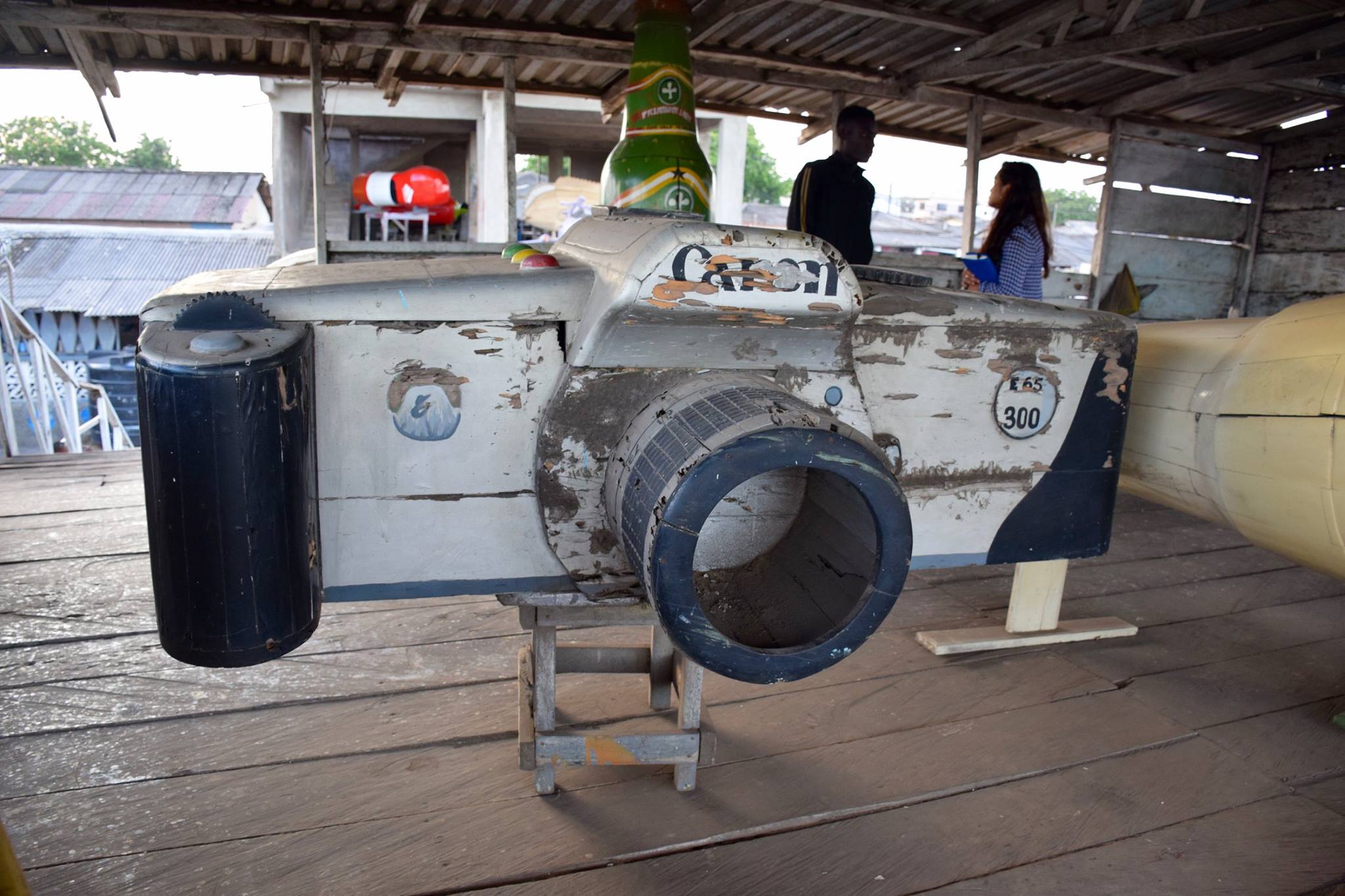
Fantasy Coffins Celebrate Ghana’s Rich Culture
By Aastha Kc
[divider]
[dropcap]S[/dropcap]ilas Mensah, a tall, slender boy of 19, is like any other college student; he studies Marketing at Accra Technical University and enjoys playing soccer on the university’s team. But a year ago, he added another extra-circular to his list: coffin-making.
After class, Mensah begins his apprenticeship on the first floor of a small cemented workshop just steps away from Teshie Road, a hub of vendors that sells everything from old television sets to freshly cut watermelons. His teacher and mentor is none other than his father, Daniel Mensah, who has been in the coffin making business for the past 25 years. In a dimly lit room, Mensah and his father gather an arsenal of tools — saws, chisels and hammers, and even bright colors . However this father-son duo are not shaping, cutting and painting the typical coffin — the rectangular black or brown box at American funeral parlos, instead, they carve fantasy coffins — coffins that resemble everyday objects such as a blow dryer, ice-cream or a camera.

Grown out of a desire to reject western influences while celebrating the rich culture of the ethnic Ga people near Labadi Beach, these fantasy coffins reflect the rich and illustrative lives of the people who have died, often made to match the person’s profession. “We believe that even if the person dies, [he or she] will continue to work in the other life,” explained Mensah. A journalist’s coffin could be in the shape of a pen or a camera; a fisherman’s coffin might be in the shape of a net or a fish. Similarly, a hoe could be used for a farmer, a pen for a teacher, a bible for a priest, or a hairdryer for a stylist. Coffin designs also represent shapes that a person might have enjoyed in life, such as a ripe pineapple or a fresh Ghanaian Club beer. These fantasy coffins take anywhere from weeks to months to build and can cost anywhere from a couple hundred to thousands of dollars, depending on the intricacy of the designs. A video camera and an eagle were among the most expensive coffins made- each with a price tag of 5,000 GHS.

Fantasy coffins were originally made by a carpenter named Kane Kwei in the 1950s; the first of his creations included a coca leaf for his father who worked in the cocoa fields and an airplane for his grandmother who always dreamed of flying. Since then, Kane Kwei has built various shapes and designs and has trained many artists under his wing, including Paa Joe, and a man named Baju who went on to train Daniel Mensah. Mensah trained under Baju for 8 years before opening his own coffin shop (“Hello Design Coffin Works”) in 1998 in Teshie, Accra. From Mensah’s perceptive, these elaborate coffins are built as “a celebration of the life that the dead lived.” “It’s a way to honor your family members” he explains.
When asked why Silas enjoys building fantasy coffins with his father, Silas commented on the fond memories that he has made with his father. He also enjoys the challenges of coffin-making. “It helps me bring out ideas into art and allows me to be creative,” he says. While Silas views coffin-making as a part-time job, he says he looks forward to building new designs with his father. Mensah now hopes to pass on the trade and skills to his three sons.

Fantasy Coffins, which have become a new contemporary African art form, has gained popularity not just in Ghana but also internationally. Recently, the “Hello Design Coffin Works” workshop received an order to build a gun for a buyer in Finland, a bottle for Italy, and a map for Germany, all of which are intended for burial purposes. The Mensah’s have also been commissioned to showcase their works in Western Museums. However, as more and more art collectors become interested, this African art faces a risk of commodification, placing the original meaning and traditions at risk.
But for the time being, Daniel Mensah and Silas Mensah, hopes that they can simply honor a person’s wishes and help family members bury them in an honest and authentic representation of their lives.
[hr]
Aastha Kc ’20 is a prospective Ethnicity, Race, and Migration major in Pauli Murray College. Contact her at aastha.kc@yale.edu.